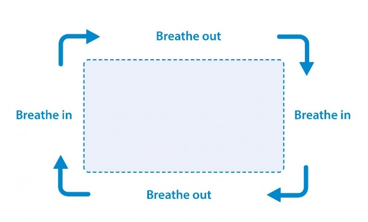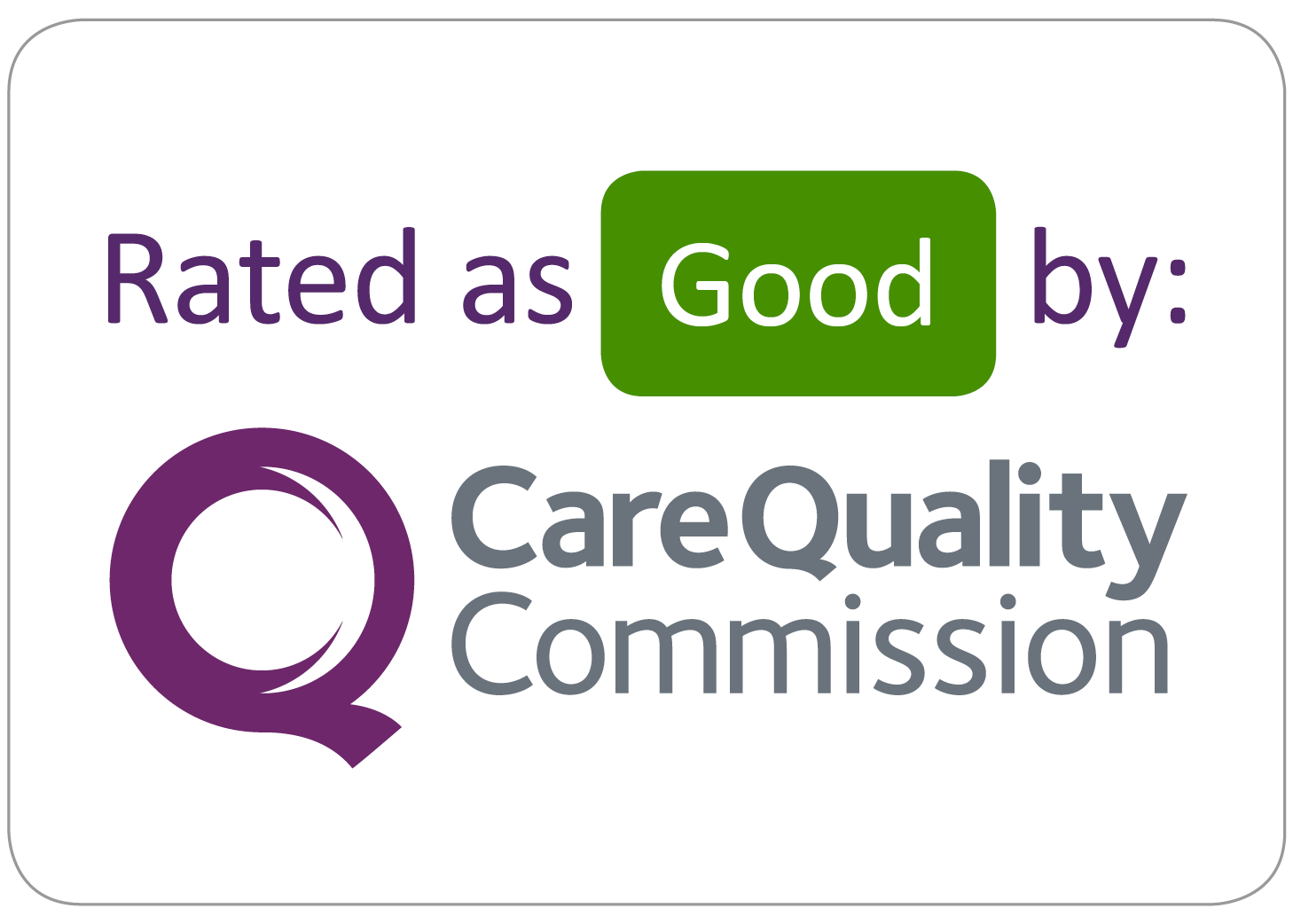Patient wellbeing and information
There are many aspects to wellbeing as you go through your treatment for lung cancer. The areas people with cancer feel support is needed are below. There is information about how to support yourself and links to other support available.
Breathlessness and relaxation
Reducing stress and tension can help you feel more relaxed and help your breathing. Relaxation techniques can help reduce stress and help you manage your condition.
Rectangle Breathing technique
Rectangle Breathing can be used to slow down and help control your breathing. Using the sides of the rectangle as you breathe in and out can help if you are feeling worried about something, your breathing is hard to control or you feel short of breath. Breathe in for the short side, out for the long side, in for the short side and out for the long side. It is often recommended to try 4 seconds to breathe in and 6 seconds to breathe out.
This is a diagram to guide you through Rectangle Breathing.
Tips for making the most of Rectangle breathing -
Doing four cycles of rectangle breathing every morning and evening
Rectangles can be seen in most places - picture frames, phones, windows. Look for a rectangle when you are out and about to help you control your breathing.
Proactively incorporating rectangle breathing into your day if you know a stressful situation is coming up on your calendar
Reducing the time in each step to two or three seconds if you’re having difficulty maintaining the four- six second count (this is especially helpful if you have asthma, allergies or other breathing difficulties)
Please click here for the Managing Emotions section that describes other relaxation techniques, including Mindfulness.
The link below offers support and videos to help you practise some relaxation that can help your breathing Breathing and relaxation techniques | Coping with cancer | Cancer research UK
Breathing rectangle for breathlessness video
Fatigue
This is one of the most common side effects of cancer and cancer treatment. Click here for more information about the causes of fatigue, how to support yourself before treatment to reduce the impact of fatigue and ways of managing fatigue if you are affected by it.
Eating well
Being well nourished and maintaining a healthy weight is good to support you before, during and after treatment. At times poeple may have changes to appetite and eating and the information here helps support you. Our 'Snacking-Food for Thought' booklet (click the link) gives you a guide of nourishing snacks to have to help maintain weight and support the little and often approach to eating.
Being active
Physical activity is safe to continue when diagnosed with cancer and throughout treatment and beyond. Being active can help when you are diagnosed with cancer both physically and mentally. Being active can also help you preprare for and get through treatment, whether that be surgery, chemotherapy, radiotherapy or other treatment and support your recovery. Physical activity doesn't always mean exercise so in this section we have described the benefits and ways of being active that suit your lifestyle and everyday routine.
Our Physical activity leaflet can be used as a guide and is available to download by clicking here.
Please click here to access the Physical Activity page which will open in a new page.
Managing emotions
Being diagnosed with lung cancer can have a huge impact on mental health. Affecting mood and emotions, increasing worry and anxiety and uncertainty. In this section there is information about the psychological impact of cancer and cancer treatment and ways to help you manage and support yourself. There are also links to other areas of help within the hospital and in your local community. Click here to access the managing emotions page.
Sleep
Many people find sleep difficult when diagnosed with lung cancer. This may be due to discomfort, pain, position or breathing difficulties. It can also be due to worry, anxiety and stress. There are things for you to try that may help you get a better night sleep. Click here to take you to the sleep section Speak to your clinical team if you continue to struggle.
Stopping Smoking
It is recommended that you try and stop smoking when diagnosed with cancer. There are many benefits to how you will feel both generally and throughout your cancer treatment. It is understandable that stopping smoking is something you may find difficult to achieve on your own and there is support availble to help. Click here to take you to the stop smoking page.
Additional information
These two links take you to the British Lung Foundation and Roy Castle Lung Cancer Foundation websites:
Lung cancer | Asthma + Lung UK (blf.org.uk)
Home - Roy Castle Lung Cancer Foundation
Access our First Steps page by clicking here. This will take you to the First Steps Cancer Programme pages with access to lots of support and details of how to book onto our monthly First Steps patient sessions.


















